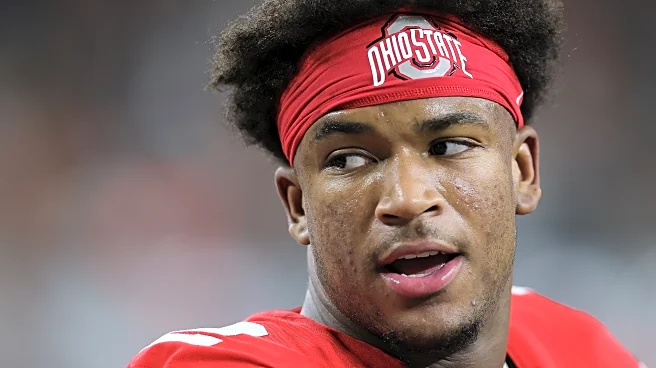What's Happening?
Governor Phil Murphy is facing challenges in selecting a new Attorney General for New Jersey, a decision that is crucial for maintaining a unified policy agenda. The role of the Attorney General in New Jersey involves representing the state and its agencies
in court, issuing formal opinions, overseeing high-profile criminal prosecutions, and bringing civil actions on behalf of the state. The appointment is subject to State Senate confirmation, similar to the federal model. The article highlights the importance of alignment between the governor and the attorney general to avoid unnecessary conflict and ensure effective governance. Historical examples, such as President John F. Kennedy appointing his brother as Attorney General, are cited to emphasize the significance of loyalty and coherence in such appointments.
Why It's Important?
The selection of an Attorney General is pivotal for the stability and coherence of governance in New Jersey. A like-minded attorney general can help the governor implement a unified policy agenda, reducing the risk of internal conflicts that could hinder state operations. The article contrasts the approaches of President Joe Biden and President Trump in selecting their attorneys general, illustrating the impact of these choices on their administrations. Biden's choice of Merrick Garland, known for his independence, and Trump's selection of Pam Bondi, noted for her loyalty, reflect differing priorities in governance. These examples underscore the broader implications of the attorney general's role in shaping legal and political landscapes.
What's Next?
Governor Murphy's decision on the Attorney General appointment will likely influence New Jersey's legal and political environment. The appointment process involves State Senate confirmation, which could introduce political dynamics affecting the selection. The governor may consider candidates who align with his policy goals and can effectively manage the state's legal affairs. Observers will be watching for potential candidates from within Murphy's political circle or those with proven legal expertise. The outcome of this appointment could set the tone for Murphy's administration and its ability to navigate legal challenges and implement policy initiatives.
Beyond the Headlines
The appointment of an Attorney General in New Jersey carries deeper implications for the state's governance and legal framework. The role requires balancing legal expertise with political acumen, as the attorney general must navigate complex legal issues while supporting the governor's agenda. The historical context provided in the article, such as Kennedy's appointment of his brother, highlights the ethical considerations in selecting a loyal yet competent candidate. This decision could also influence public perception of the administration's commitment to transparency and effective governance, impacting voter trust and future political dynamics.















